
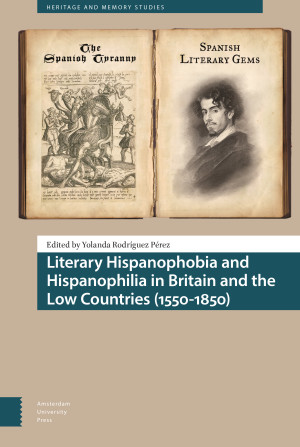
- Title
- Literary Hispanophobia and Hispanophilia in Britain and the Low Countries (1550-1850)
- Editor
- Yolanda Rodríguez Pérez
- ISBN
- 9789048541935
- Format
- eBook PDF
- Number of pages
- 348
- Language
- English
- Publication date
- 22 - 01 - 2020
- Dimensions
- 15.6 x 23.4 cm
- Open Access
- Download on Open Access Platform
- Partner

- Categories
- Early Modern Studies
- International Relations
- Literary Theory, Criticism, and History
- Modern History
- Discipline
- History, Art History, and Archaeology
- Also available as
- Hardback - € 141,00
Introduction
On Hispanophobia and Hispanophila across time and space, Yolanda Rodríguez Pérez
PART I Early Modern discourses on Spain
1.Being Spanish in the Early Modern World, Alexander Samson
2. Spanish exemplary rulership? Antonio de Guevara's Relox de Príncipes (1529) in English (1557) and Dutch (1578) translation, Sabine Waasdorp
3. Between Love & Hate: Thomas Scott's Puritan Propaganda and his fixation on Spanish Culture, Ernesto E. Oyarbide Magaña
4. Enemy Treasures: the Making and Marketing of Spanish Comedia in the Amsterdam Schouwburg, Frans Blom
5. 'The barke is bad, but the tree good': Hispanophilia, Hispanophobia and Spanish Honour in English and Dutch Plays (ca. 1630-1670), Rena Bood
6. James Salgado: Anti-Spanish Sentiment and the Popish Plot, Antonio Cortijo Ocaña
PART II Modern discourses on Spain
7. From Hispanophobia to Quixotephilia. The Politics of Quixotism in the British Long Eighteenth Century, Pedro Javier Pardo
8. Spanish Politicking in British Periodical Reviews, 1808-1814,Susan Valladares
9. Hispanophobia and Hispanophilia in the Netherlands: Continuities and Ruptures in the Nineteenth Century, Lotte Jensen
10. From azoteas to dungeons: Spain as archaeology of the despotism in Alexander Dallas's novel Vargas (1822), Fernando Durán López
11. Discordant Visions: Spain and the Stages of London in 1823, Diego Saglia
12. Historical Fiction, Cultural Transfer and the Recycling of the Black Legend between the Low Countries and Britain: a Nineteenth-Century Case Study, Raphaël Ingelbien
13. 'Covering the skeletons with flesh and blood': Spanish Golden Age drama in English and Dutch nineteenth-century literary histories, Yolanda Rodríguez Pérez
Reviews and Features
'[A]s the volume unfolds, one cannot but sense that there is important interdisciplinary work taking place between its covers. [...] The volume will thus be of interest to scholars interested in exploring the international dynamics of literary history, as well the ways literature and drama may figure in processes of national becoming that far exceed the contexts of their originating production and consumption."
- Eric J. Griffin, Millsaps College, Early Modern Low Countries 5 (2021) 2
"Reading Literary Hispanophobia and Hispanophilia in Britain and the Low Countries (1550–1850) is an illuminating experience, a master class even, for understanding in depth how Anglo-Dutch relations developed in relationship to the depictions of hispanophobia and hispanophilia. [...] Rodríguez Pérez has crafted an impeccable compilation, the model of what an edited volume should be. All of the studies share a strong intersectionality between literature and history, and they complement each other perfectly, such that together they resemble a monograph more than a collection of essays."
- Esther Fernández, Rice University, Journal of British Studies (2021)
"Literary Hispanophobia and Hispanophilia in Britain and the Low Countries (1550-1850) es un volumen rico y complejo, con unas contribuciones variadas e instructivas. Por su enfoque audaz e innovador, este libro ofrece nuevas perspectivas y suscita muchas preguntas fascinantes, y será de interés para estudiosos de diversos campos, tal como el hispanismo, la literatura comparada, el romanticismo europeo, la historia de la modernidad, y la imagología."
- Nettah Yoeli-Rimmer, Cuadernos de Ilustración y Romanticismo, No. 26 (2020)
"La historia de las múltiples declinaciones de la hispanofilia y la hispanofobia como fenómenos históricos y no como evidencias morales invita a pensar una reflexión global del pasado y hacerlo desde la aportación de nuevos objetos y nuevas reflexiones, sin menoscabar todo lo ya aprendido. Un libro como el de Yolanda Rodríguez Pérez es un avance significativo en dicha línea, un excelente volumen que junto a la información que suministra nos invita a pensar una historia más global, a abrir las ventanas de nuestras reflexiones y nuestras historiografías."
- José Javier Ruiz Ibáñez, Universidad de Murcia, Cuadernos de Historia Moderna (2020)
- Eric J. Griffin, Millsaps College, Early Modern Low Countries 5 (2021) 2
"Reading Literary Hispanophobia and Hispanophilia in Britain and the Low Countries (1550–1850) is an illuminating experience, a master class even, for understanding in depth how Anglo-Dutch relations developed in relationship to the depictions of hispanophobia and hispanophilia. [...] Rodríguez Pérez has crafted an impeccable compilation, the model of what an edited volume should be. All of the studies share a strong intersectionality between literature and history, and they complement each other perfectly, such that together they resemble a monograph more than a collection of essays."
- Esther Fernández, Rice University, Journal of British Studies (2021)
"Literary Hispanophobia and Hispanophilia in Britain and the Low Countries (1550-1850) es un volumen rico y complejo, con unas contribuciones variadas e instructivas. Por su enfoque audaz e innovador, este libro ofrece nuevas perspectivas y suscita muchas preguntas fascinantes, y será de interés para estudiosos de diversos campos, tal como el hispanismo, la literatura comparada, el romanticismo europeo, la historia de la modernidad, y la imagología."
- Nettah Yoeli-Rimmer, Cuadernos de Ilustración y Romanticismo, No. 26 (2020)
"La historia de las múltiples declinaciones de la hispanofilia y la hispanofobia como fenómenos históricos y no como evidencias morales invita a pensar una reflexión global del pasado y hacerlo desde la aportación de nuevos objetos y nuevas reflexiones, sin menoscabar todo lo ya aprendido. Un libro como el de Yolanda Rodríguez Pérez es un avance significativo en dicha línea, un excelente volumen que junto a la información que suministra nos invita a pensar una historia más global, a abrir las ventanas de nuestras reflexiones y nuestras historiografías."
- José Javier Ruiz Ibáñez, Universidad de Murcia, Cuadernos de Historia Moderna (2020)
Yolanda Rodríguez Pérez (ed.)
Literary Hispanophobia and Hispanophilia in Britain and the Low Countries (1550-1850)
Spain has been a fruitful locus for the European imagination for centuries, and it has been most often perceived in black-and-white oppositions -- either as a tyrannical and fanatical force in the early modern period or as an imaginary geography of a ‘Romantic’ Spain in later centuries. However, the image of Spain, its culture and its inhabitants did not evolve inexorably from negative to positive. From the early modern period onwards, it responded to an ambiguous matrix of conflicting Hispanophobic and Hispanophilic representations. Just as in the nineteenth century latent negative stereotypes continued to resurface, even in the Romantic heyday, in the early modern period appreciation for Spain was equally undeniable. When Spain was a political and military superpower, it also enjoyed cultural hegemony with a literary Golden Age producing internationally hailed masterpieces. Literary Hispanophobia and Hispanophilia in Britain and the Low Countries (1550-1850) explores the protracted interest in Spain and its culture, and it exposes the co-existent ambiguity between scorn and fascination that characterizes Western historical perceptions, in particular in Britain and the Low Countries, two geographical spaces with a shared sense of historical connectedness and an overlapping, sometimes complicated, history with Spain.
Editor
Yolanda Rodríguez Pérez
Yolanda Rodríguez Pérez is Associate Professor of European Literature and Culture in the Department of European Studies at the University of Amsterdam. She specializes in Spanish-Dutch-Anglo cultural exchanges in the early modern period and beyond, with a focus on the intersection between literature and ideology, nation-building processes, imagology and translation studies.
Related titles
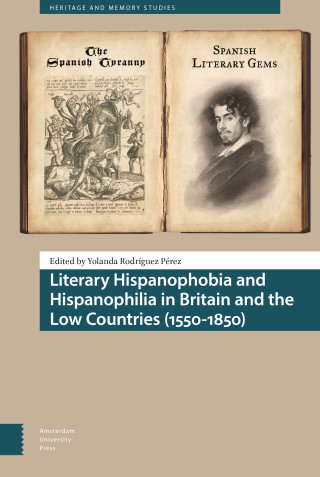
Literary Hispanophobia and Hispanophilia in Britain and the Low Countries (1550-1850)
Yolanda Rodríguez Pérez (ed.)
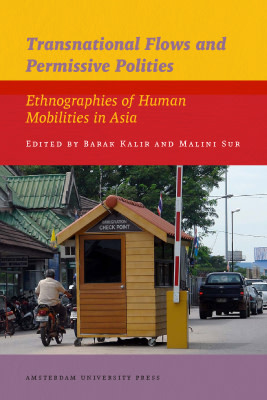
Transnational Flows and Permissive Polities
Barak Kalir, Malini Sur, Barak Kalir, Malini Sur
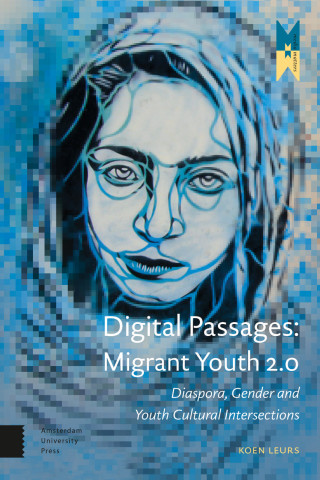
Digital Passages: Migrant Youth 2.0
Koen Leurs
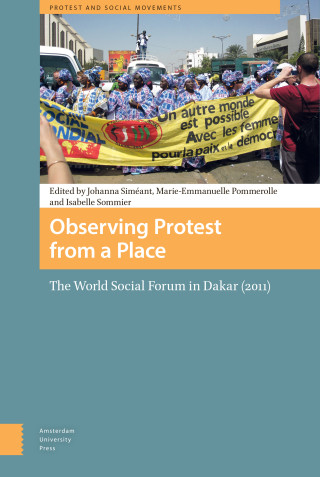
Observing Protest from a Place
Johanna Siméant, Marie-Emanuelle Pommerolle, Isabelle Sommier (eds)
